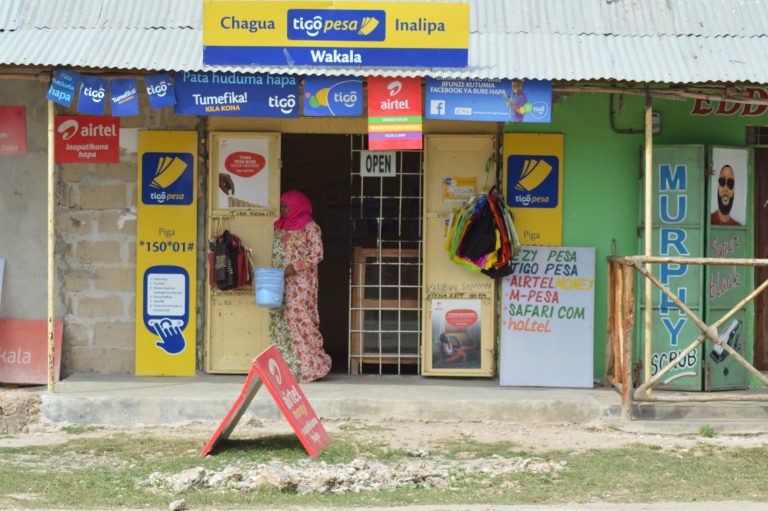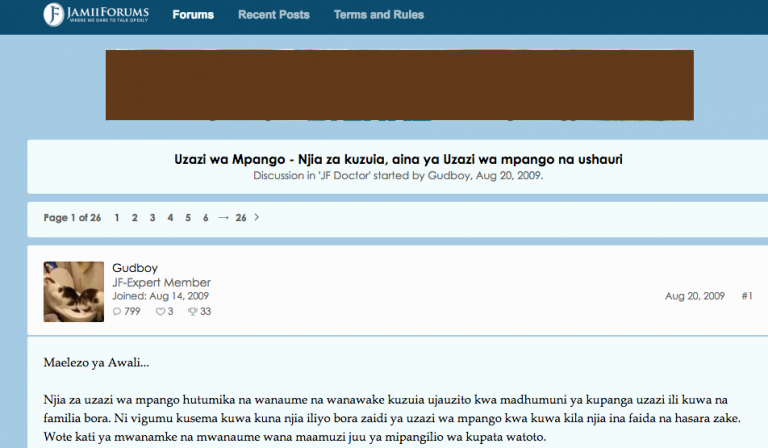(Photo: Neil Palmer/CIAT)
Thanks to a new technology!
Thanks to an increase in mobile phone ownership and readily affordable data bundles, internet usage across Africa is rapidly growing.
This means that more people in the continent are becoming digitally literate and have access to information, resources, and opportunities that they have never had before – creating new avenues for social and economic development.
However, in sub-Saharan Africa women are 45% more likely to have no internet access compared to men. Women currently make-up over 50% of the labour force in the continent, and their higher rates of digital illiteracy means that many women will not benefit from the opportunities that the internet affords, which has severe implications not just for themselves, but for their families, communities and nation.
According to ALA Connect, digital literacy is the ability to use communication technologies to find, evaluate, create, and communicate information, requiring both cognitive and technical skills. Here are three key ways digital literacy can help women and girls in Africa.
1. Access to financial services (economic empowerment)

Mobile money agent in Tanzania
Moreover, some mobile money services now allow people with little financial capital to take loans at low-interest rates. Knowledge of and access to these digital services can empower women to start small businesses and give them greater control over their money and savings. This has positive implications for their communities as women globally reinvest about 90% of their income into their households.
Nevertheless, economic empowerment is best taught at a young age. As a result, we have created an episode of Ubongo Kids that teaches adolescents the value of ‘saving for a rainy day’. Furthermore, we have partnered with SPRING Accelerator to understand the dreams and aspirations of girls aged 9-14 in Tanzania and Kenya. As well as to leverage the vast viewership of Ubongo Kids to educate girls about the importance of saving and financial literacy in general.
2. Access to health services and information

Tanzanian forum where people discuss different societal issues including contraceptive methods
What are the symptoms for Malaria? How do you have a healthy diet? Is it ok to give a newborn water? How does birth control work? All these questions can be answered through the internet.
Many communities across Africa are incredibly conservative, and it may be deemed inappropriate for girls and women to ask questions regarding sensitive subjects like reproductive health, sex, religion, politics, and societal norms. Luckily, the internet has a wide range of resources that can provide women with information about their health and well-being.
One of the biggest hindrances to the social and economic development of girls is early pregnancies, as they often lead to girls dropping out or being kicked out of school and missing out on getting the skills they need to be financially self-reliant. While there are more complicated societal and economic reasons why so many girls end up pregnant, having access to educational and health information online may help them prevent unplanned pregnancies and give them access to support groups and organisations that can help them in difficult circumstances.
3. Access to educational resources
[embedyt] https://www.youtube.com/watch?v=5eKFbfvFx6Y[/embedyt]
Probably one of the biggest benefits of being digitally literate is that there are a plethora of free learning resources online. From YouTube videos to apps like the Ubongo Kids Quiz App and platforms like Shule Direct and Khan Academy, young girls can use these platforms to supplement the education they are receiving in school and learn deeper. Moreover, women can watch use different e-learning platforms to learn new skills like hair-braiding techniques, coding, cooking, gardening, and more.
However, we have to tackle literacy as well
The biggest reason why women continue to fall behind men when it comes to digital literacy is, well, illiteracy. While the literacy rate has increased to above 60%, only 75% of women are literate compared to 86% of men in developing countries. And while you don’t have to know how to read or write to use a phone, literacy is essential in navigating new technologies and the internet.
So as we work towards getting more girls to be tech savvy, we also need to continue our efforts to help them learn to read and write. At Ubongo, we start early with Akili and Me, which teaches pre-literacy to preschoolers. And we’ll also be tackling digital literacy for adolescents in a coming episode of Ubongo Kids.
What are you doing to help educate and empower girls and women across Africa? If you want to collaborate with us in some way, send us an email.















